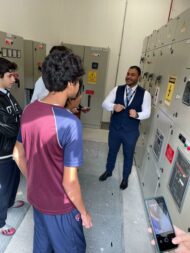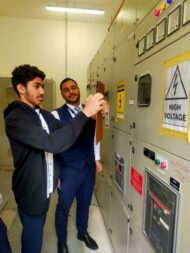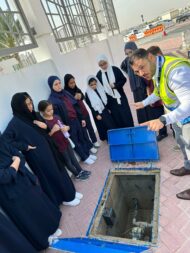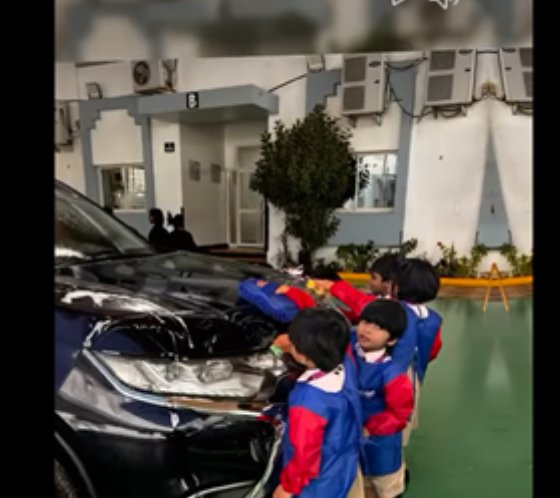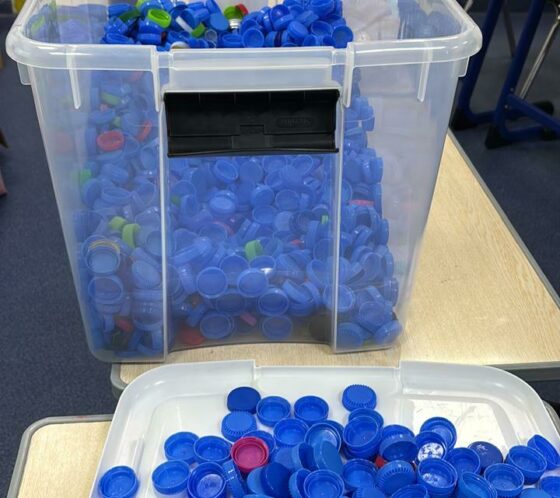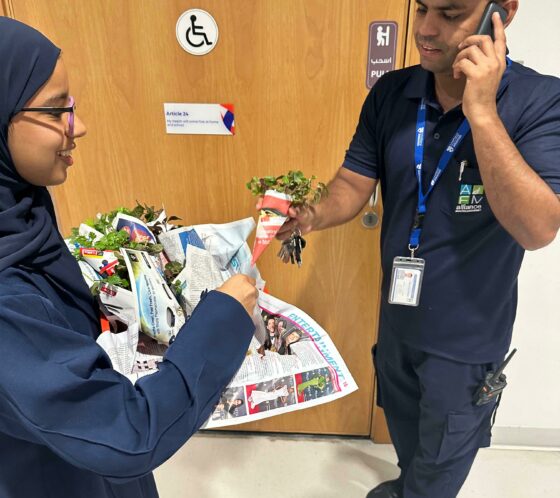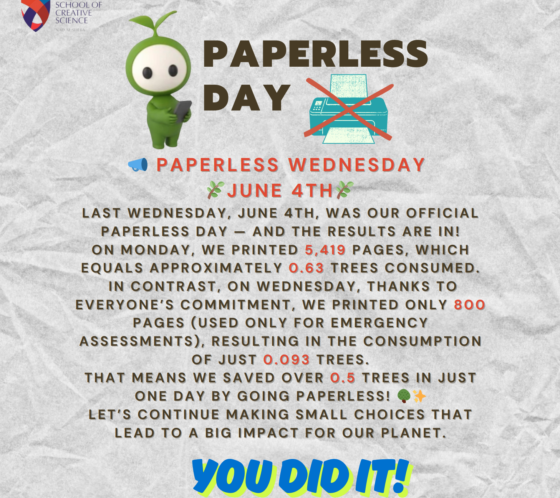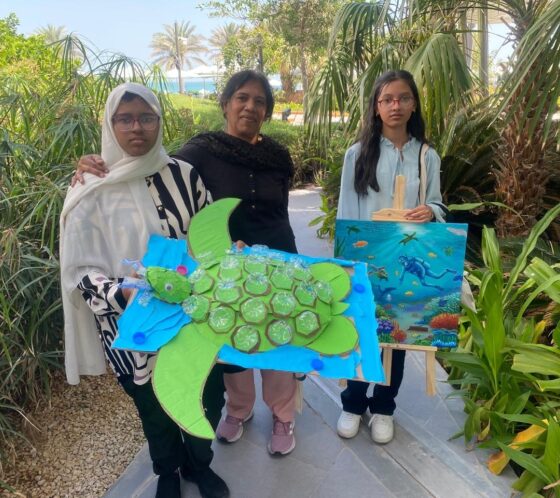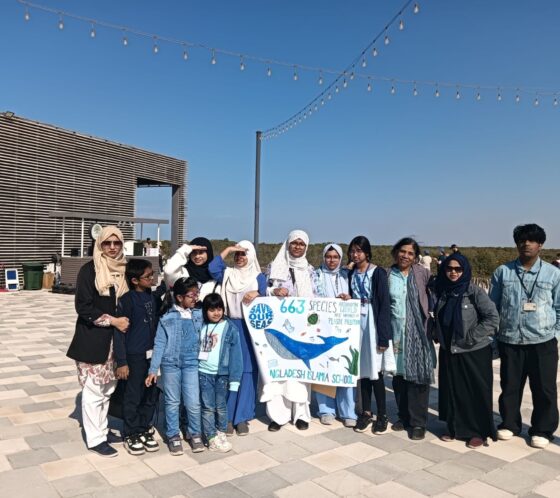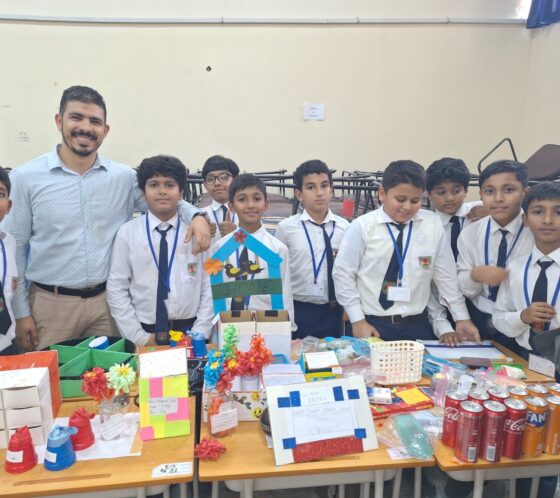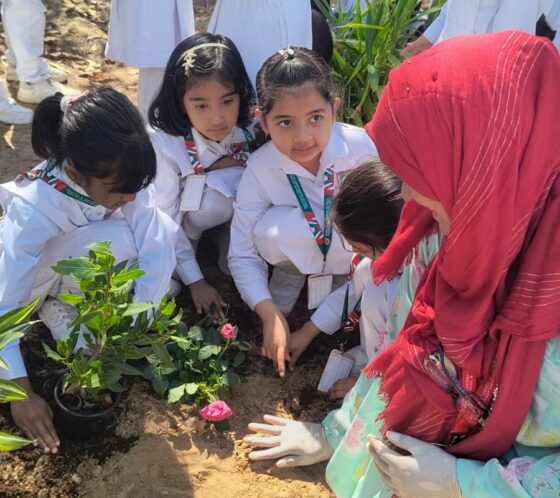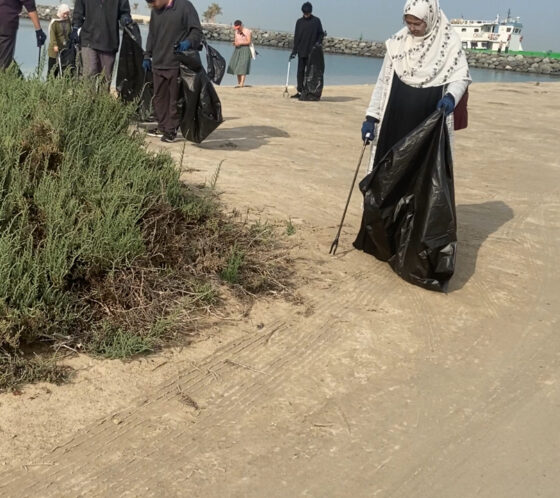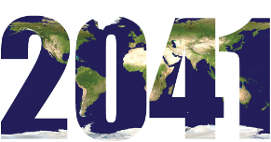For the past two years, selected Eco Warriors have participated in visits to the DEWA meters alongside the Head of Operations and Head of Eco Committee. During these visits, they recorded the readings to foster a sense of responsibility regarding water and electricity consumption.
This activity benefits students in several meaningful ways:
- Fostering Environmental Awareness:
By visiting the DEWA meters and recording water and electricity readings, students develop a concrete understanding of resource consumption and its impact on the environment. This firsthand experience helps them connect abstract concepts like sustainability to real-world practices. - Building Responsibility:
Regularly monitoring the meters encourages students to take ownership of their role in conserving resources. This sense of responsibility can extend beyond school, influencing their behavior at home and in their communities. - Developing Practical Skills:
Students learn how to read and interpret utility meters, a valuable life skill that increases their technical knowledge and numeracy. They also gain insights into how everyday actions, such as turning off lights or fixing leaks, can reduce resource usage. - Encouraging Leadership:
As Eco Warriors, students take on a leadership role within the school’s sustainability efforts. This empowers them to act as role models and advocates for eco-friendly practices among their peers. - Promoting Teamwork:
Working alongside the Head of Operations and Eco Committee Teachers teaches students the value of collaboration and the importance of teamwork in achieving larger sustainability goals. - Instilling a Long-Term Commitment:
Early exposure to resource monitoring and sustainability practices lays the foundation for lifelong habits of environmental stewardship. Students learn that even small actions can contribute to a bigger impact on conserving natural resources.
By engaging in this activity, students not only gain practical knowledge but also develop the values, skills, and mindset needed to become proactive, environmentally conscious individuals
Here are some of the questions posed by our Eco Warriors:
- What do these meters measure, and how do they work?
- How often are the readings recorded, and who usually checks them?
- What is the difference between water and electricity meters?
- How does the school receive and use the information from these meters?
- How much water and electricity does the school use on average each day or month?
- Which areas of the school use the most electricity or water?
- What are some of the factors that can cause these numbers to go up?
- How can we tell if there is a problem, like a leak or unnecessary energy use, from these readings?
- How does monitoring these readings help the school reduce its environmental impact?
- What steps has the school taken to save water and electricity based on these readings?
- How can students help lower these numbers through their daily actions?
- What changes could we make at school to use less water and electricity?
- Are there any renewable energy sources or water-saving technologies the school is considering?
- How will understanding these meters help us in other sustainability projects?
- What surprised you about the numbers on the meters?
- What ideas do you have to help improve the school’s resource efficiency?
- How can we share what we’ve learned with others at school or at home?
